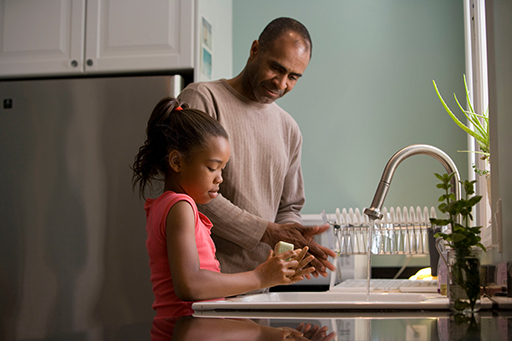Use 'Print preview' to check the number of pages and printer settings.
Print functionality varies between browsers.
Printable page generated Wednesday, 8 May 2024, 4:31 PM
Section 2: Student carer experiences at university
Introduction
Welcome to Section 2 of the Carer Aware at University course. In this section we will build on Section 1 and develop a deeper understanding of how a caring role could impact on a student carer’s experience at university. We will explore both the barriers and the opportunities a caring role can create for a student.
Section learning outcomes
On completing this section, you will be able to:
Demonstrate an awareness of the skills a carer can develop through their unpaid caring role and how they can be applied to their learning.
Identify the issues that affect carers while they are studying and their academic experience.
Explore strategies that can make a difference to the life of a student carer.
Reflect on stereotyping and assumptions that might affect how you support student carers.
Now move onto 2.1 What student carers bring to university.
2.1 What student carers bring to university
When carers get together, they rightly share how proud they feel about what they do. Some carers attend their local carers centre and are supported to reflect on the skills they have gained through unpaid caring. However not all carers will recognise that they have these skills or realise that they can apply them to their university experience. Your understanding of their caring role will help student carers to recognise the value of their skills.
Christina, a Student Wellbeing Advisor from Glasgow Caledonian University, shares her views on the skills carers learn through their caring role and the impact it has on their student life:
Often it is the experience people gain from their caring role that inspires them to come to university. I meet a lot of student carers who have come onto programmes like nursing and social work, and it’s often because of their own experiences navigating the health and social care system. I think having people with this kind of life experience on these programmes is really valuable; they bring knowledge and transferable skills, and a whole lot of empathy.
They tend to really value the opportunity to be at university; often carers will put the needs of the person they care for before themselves, so it becomes a huge part of a person’s identity. Being at university is viewed as something they are doing for themselves; it can feel like respite for them, and for some it helps them feel a sense of identity that isn’t all about their caring role.
Stephen, a student at Glasgow School of Art, talks about the skills he’s gained from his caring role and its personal impact:
I think it makes you grow up a lot faster. Have an understanding, maybe not of the world, but you have an understanding of life that most people don’t, because you know what it’s like to love someone enough to do things that you wouldn’t do for anyone else, take them to the toilet or whatever it may be, look after someone when they’re that ill. It does take a lot out of you, and I think it’s being quite a strong person to not only support them but support the others around them, and a lot of the time as the young person, you will take on so much responsibility both physically and emotionally of other people but not have an outlet yourself.
Activity 2.1 Skills gained from a caring role
The list below reflects the skills mentioned by Stephen and Christina. Please choose up to four from the list and think about how these skills can be useful at university.
Make some notes in the boxes provided or in your learning journal if you’re using one.
| Skills gained from a caring role | How might this skill be of benefit at University? |
| Communication skills | |
| Organised and good at time management | |
| Practical | |
| Budgeting skills | |
| Confident | |
| Mature | |
| Patient and consider things carefully | |
| Used to dealing with professionals | |
| Independent | |
| Empathic and supportive | |
| Resilient | |
| Reliable | |
| Self-efficient | |
| Leadership |
Discussion
Some students will have these skills and benefit from them at university, but this will not be the case for others. Some students may find it easier to talk to adult professionals and communicate in group settings while others may find it difficult as their caring role has been a more solitary experience.
Some students benefit from a level of a maturity and independence as they have had to take responsibility for their own and their family’s cooking and budgeting but this may also make them feel different from other students.
Caring can make students more empathic and supportive, having developed these qualities at a young age. This can be a positive in building relationships, however they may find themselves taking on a one-sided caring role within their friendships.
2.2 The impact of caring on the student experience
The more you know about the different experiences carers have the better you will be able to provide personalised and flexible support to student carers.

Transcript: Video 2.1 Impact on study
[Impact on study]
[Impact university had on carer and cared for]
Activity 2.2 The impact of caring on study
Having listened to Rebecca, Charlotte and Bethany discuss their experiences of caring while at university (Video 2.1), let’s take some time to reflect on the impact caring can potentially have on the students you are working with.
This activity draws on a range of experiences, some of which were shared by student carers who took part in The Student Carer Experience in Scotland research, carried out by Carers Trust Scotland (Martin, 2020).
As you complete the activity, think about how your reflections could shape the polices, practices and care plans you have in place or could develop for student carers.
In the left-hand column is a real-life experience from a student carer.
In the middle column we would like you to reflect on how you think this experience may impact the student.
In the right-hand column we would like you to reflect on how having this understanding may influence the support you give the student carers you work with.
We have started you off with an example.
Experience | What impact might this experience have on a student carer? | In your role, how might knowing about this help you to support student carers? |
‘I chose to go to a University close to home so I could still help out. It’s hard to switch off from worrying about mum and dad while I’m out at University.’ | Example: When in class, carers can feel stressed and anxious about what’s going on at home and feel out of touch. Carers will often spend time emergency planning so that they have strategies for responding to unforeseen incidents that occur while they are not with the person they care for. This can impact on their concentration and participation when learning as well as their health and wellbeing. | Example: check in with carers at the start of term to plan strategies for dealing with emergencies that may arise while they are in class. Be more patient if they seem distracted. |
‘I know people stay behind and go to the library. But sometimes you can’t because you’ve been away since 9 a.m. You need to go home and get stuff done.’ | ||
‘Mum struggles a lot with her health so I end up doing a lot of care for my little sister, school pick up and drop off.’ | ||
‘We get no additional funding as carers. We don’t qualify for carers allowance and we often need to take on part time jobs. It’s like leading a triple life and it’s not practical mentally, emotionally or physically.’ | ||
‘I think the most important thing for Universities to know about supporting students with caring responsibilities is to make it explicit that there is support available. I didn’t know till I had nearly finished my course.’ | ||
‘Even though it was a question on the application form, no-one has actually asked me about my caring role. No-one has contacted me about it.’ | ||
‘You can’t always do the same things as other students; it’s harder for me to meet uni friends socially.’ | ||
‘Sometimes it's hard to ask for help and you can sometimes feel like a failure if you can't cope’ |
2.3 Equality and inclusion
Carers can experience a range of challenges to access, participate and succeed at university and these may lead to unequal outcomes. We will hear from the student carers about their journeys into higher education. We will also look at how a caring role can often intersect with other markers of disadvantage and examine this from an equality and diversity perspective.
Accessing higher education
In these videos, student carers share their journeys into higher education. Many carers see university as not being an option for them, so outreach and widening participation activity make all the difference to them accessing higher education. Some will not achieve the grades they need because of the impact their caring role has had on school so may benefit from alternative routes into higher education, such as college or apprenticeships. Student carers are also at higher risk of dropping out once they get to university (Sempik and Becker, 2014) so can benefit from additional support to manage their caring role while studying.

Transcript: Video 2.2 Journeys into higher education
[Journeys into Higher Education]
Poverty
Finance can be a real challenge for unpaid carers. According to Carers UK, one third of carers are struggling to pay utility bills, 47% have been in debt and half are struggling to make ends meet, cutting back on food and heating as a result (Carers UK, 2020). Another disadvantage is that student carers are not entitled to receive Carers Allowance when studying full time, even if they are caring for more than 35 hours (Gov.uk, 2020).
Financial support from the university such as bursaries, discretionary funds or money advice can be vital for many student carers.
Gender, culture and caring
In Section 1, you looked at the Equality Act (2010) and its nine protected characteristics: age, disability, gender reassignment, marriage and civil partnership, pregnancy and maternity, race, religion or belief, and sex. Some students may have one or more ‘protected characteristic’ in addition to their caring role, which can put them at further risk of disadvantage and discrimination.
We all have underlying attitudes and assumptions about people and groups that we may not be aware of. This is called unconscious bias. For example, you may make assumptions that female students, or students from certain cultures, are ‘naturally’ more caring and therefore less likely to need support. This assumption could reinforce inequalities and discrimination experienced by these groups of students.
Women – especially the poorest and most marginalized – carry out the majority of paid and unpaid care work within and outside households. This is primarily a result of a society that sees women as the main carers for families and communities. Such expectations contribute to the unequal distribution of care work between men and women from childhood, through to adulthood and old age.
Disability and mental health
In Section 1, you heard students talk about the impact of caring on their own health and wellbeing. In this video, Bethany talks about the impact on her mental health.

Transcript: Video 2.3 Impact on mental health
Student carers and mental health
While students have told us about the impact of caring on their mental health, it is difficult to obtain data on this for university students. The Scottish Funding Council (SFC) began collecting data on carers from universities in the academic year 2018–19. This data is classified as ‘experimental’ as some universities have just begun to identify and ‘flag’ carers.
In order to illustrate the incidence of mental health and disability among student carers, we have used SFC data from Scotland’s colleges, which have more established reporting mechanisms.
The table below shows that student carers have a higher rate of disability compared to their peers, with 29.2% of carers declaring a disability compared to 20.3% of non-carers. The table also shows that a higher proportion of student carers reported having multiple disabilities (9.8%), mental health difficulties (6.9%) or dyslexia (6.8%) (SFC, forthcoming, p. 4).
Table 2.1 Enrolments of student carers by disability on courses 160 hours +, 2018–19 with overall success rate, College Carers Data 2018–19 (SFC, forthcoming)
| Disability | Carers | % | Non-carers | % | Carers proportion successful |
| Unseen disability | 110 | 1.3% | 1,205 | 1.1% | 72.5% |
| Mental health difficulties | 560 | 6.9% | 4,005 | 3.6% | 66.6% |
| Wheelchair user/have mobility difficulties | 55 | 0.7% | 865 | 0.8% | 66.1% |
| Social/communication impairment | 70 | 0.9% | 1,905 | 1.7% | 76.4% |
| Dyslexia | 550 | 6.8% | 6135 | 5.6% | 67.3% |
| Blind/are partially sighted | 15 | 0.2% | 205 | 0.2% | ** |
| Deaf/have a hearing impairment | 35 | 0.4% | 425 | 0.4% | 69.4% |
| Other | 170 | 2.1% | 1,885 | 1.7% | 81.4% |
| Multiple disabilities | 795 | 9.8% | 5,625 | 5.1% | 68.1% |
| No known disability | 5,740 | 70.8% | 87,495 | 79.7% | 74.8% |
| Total | 8,100 | 100% | 109,755 | 100% | 73.1% |
** Successful completion percentage masked as they are calculated on small numbers.
Impact of COVID-19
This course was developed during the COVID-19 pandemic. The report 2020 Vision: Hear Me, See Me, Support Me and Don’t Forget Me (Carers Trust Scotland, 2020) illustrates the additional challenges for carers and how the pandemic has in some cases reinforced existing inequalities.
Carers interviewed for the report shared the following experiences:
I have no help or support whatsoever now – I’m caring 24/7 and I’m exhausted and mentally drained. My young carers service is closing before lockdown ends so I now won’t have any support and I don’t know how I’m going to cope. (Young adult carer, 22, p. 2).
I moved away for university and had to move back due to lockdown. Trying to finish assignments and do the caring role that was usually done by carers that came in is very difficult. (Young adult carer, 22, p. 11).
It makes you very isolated mentally. Support you used to be able to get from family and friends suddenly stops as no one can come and step in to give you a break as they’re not allowed near you or even in the house. (Young adult carer, 20, p. 14).
Since the pandemic started and lockdown began, my time caring has doubled since the time where I would have been at work is now spent caring so my mum can work. The lockdown has made the person I care for more agitated and he has had more meltdowns since it started which have been extremely stressful to deal with. He has no services at the moment so my mum and I can't get a break. (Young adult carer, 22, p. 15).
Digital exclusion
In addition to the isolation and lack of support during the pandemic, the move to online learning was particularly challenging for digitally excluded students who may not have access to a laptop at home, lack broadband or rely on internet from their phones to attend remote lectures and complete assignments.
Activity 2.3 Addressing inequalities
Having heard about their experiences of inequality, make some notes about the support your university may already have in place to support student carers and address the inequalities explored in this section.
Use the text box below or a learning journal if you’re using one.
Conclusion
In this section we looked at some of the skills carers develop which can benefit them at university. We also heard about how caring can impact on a student’s experience of university and reflected on how your understanding of this can help you to support carers more effectively.
We explored some of the disadvantages and inequalities carers may face in accessing higher education. It can be difficult for carers to disclose their experience of these barriers so being aware of the challenges your students face can help create responsive policy and practice.
If you would like to gain the Carer Aware badge, please complete the quiz at the end of this section. You may wish to finish the course once you achieve this badge.
If you are interested in learning more about student carers, and in exploring the criteria for the Going Higher for Student Carers: Recognition Award, Level 2 will cover this. This level will be useful for those responsible for developing a submission for the award. If your university already has the award, it can help you to review and improve the support you provide for carers.
Completion of the quiz at the end of Section 4 will gain you the Going Higher badge. You can also download a certificate of participation to evidence your learning.
After attempting the Carer Aware quiz move onto Section 3: Improving support for student carers.


